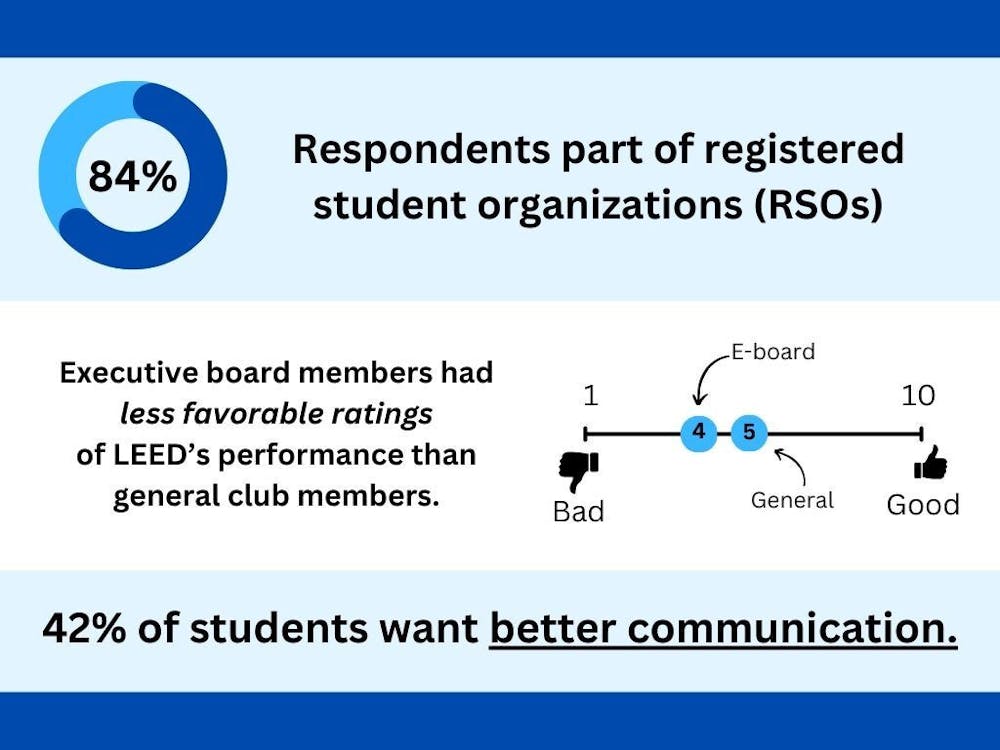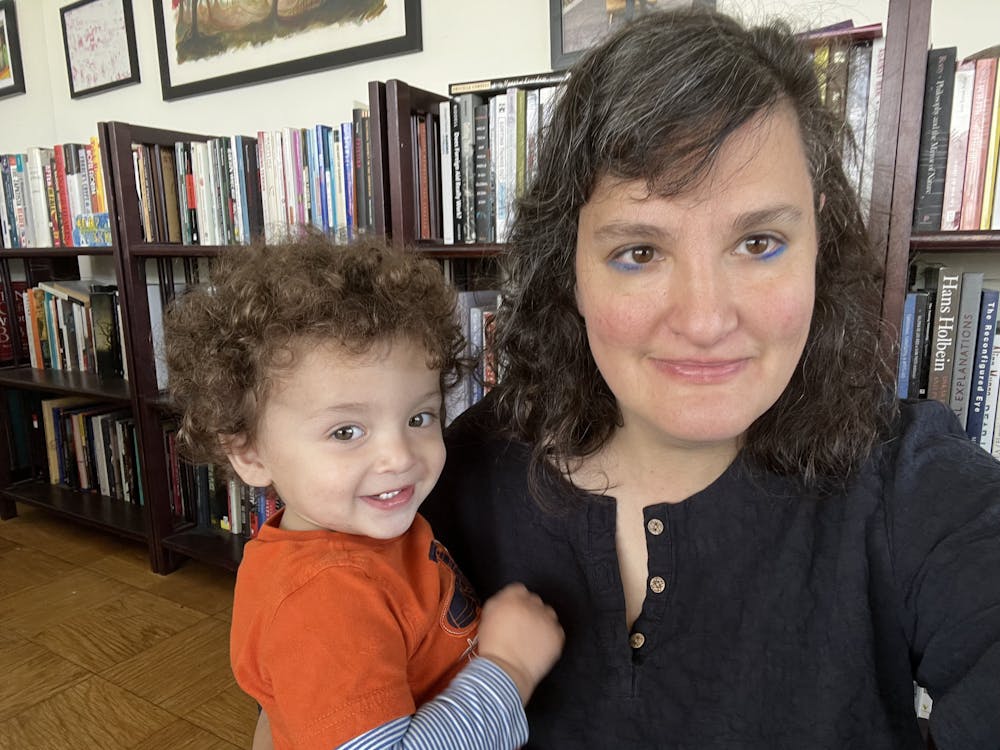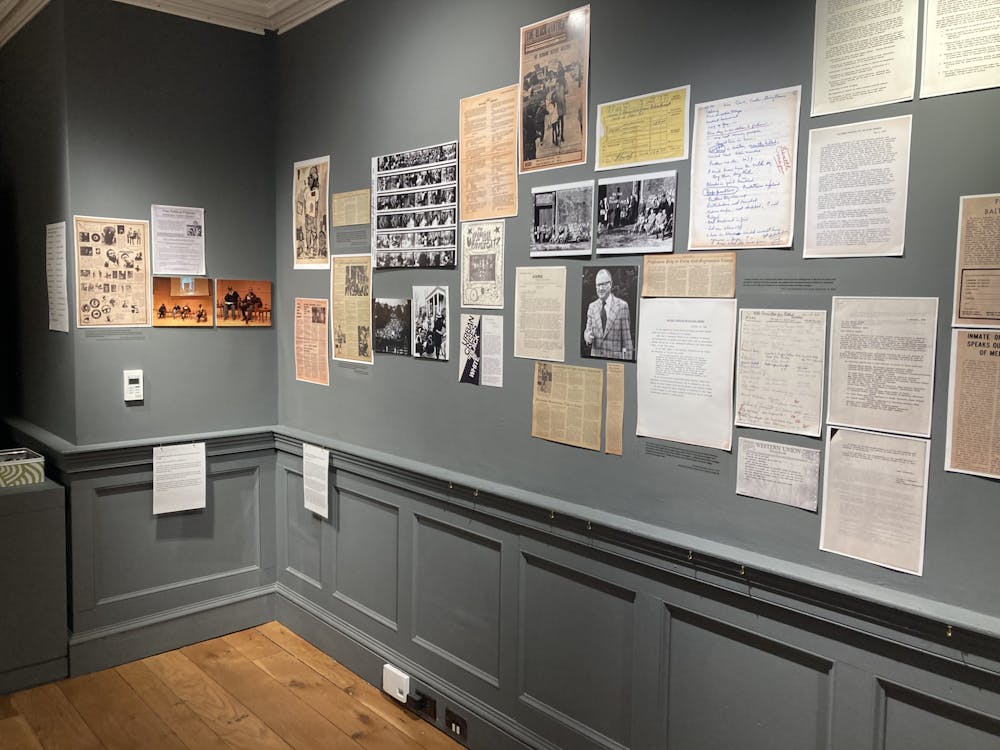I.D.E.A.L. Voting Club, a new student forum founded by sophomore Liam Haviv for nonpartisan political discussion, is seeking to change the way students form and share their political opinions.
Haviv founded the original I.D.E.A.L. Voting Club at University High School in Tuscon, Ariz. in 2011. He serves as the club’s president and hopes to create a club model that can be replicated at campuses across the country.
The acronym I.D.E.A.L. stands for “Inform. Discuss. Enlighten. Acknowledge. Learn.”
“We are a movement that is going to change the way that we look [at] and discuss politics,” Haviv said.
Sophomore Jonathan Loewenberg, the club’s vice president, said that the club hopes to spark a movement of political debate on campus that isn’t directly linked to established political institutions.
“I really thought [Haviv’s] idea was a really good one because there aren’t that many forums for discussion here on campus akin to what we’re trying to accomplish,” Loewenberg said. “You can go to College Republicans or you can go to College Democrats, but there’s really kind of an inherent bias in the discussions that are going on in all those places. So I think it’s a really interesting and genuine idea to have an informed discussion that’s free from all those kinds of biases.”
At each meeting, the club will discuss two current political issues. The Hopkins chapter will also correspond with Haviv’s own high school’s chapter as well as two other chapters at Niskayuna High School in New York and McLean High School in Virginia.
Members will have to bring in articles that back up their point of view on the discussion topics.
“We are going to bring in articles — five different sources — and try to get as many different biases and points as we can,” Haviv said. “We have to approach it as ‘why is what they’re saying so important to them?’”
Haviv also emphasized the importance of respecting others’ opinions.
“When we talk about heated issues, people are going to have really strong opinions. Those are the discussions we really want to have,” Haviv said. “But we need to remember that we are talking with a purpose, not just yelling at people, and that we’re not simply defending our own ideas but learning from others.”
At the club’s Oct. 2 meeting, Haviv brought up terrorist group ISIS’s beheadings of journalists Steven Sotloff and Jim Foley, showing non-violent video clips and portions of President Obama’s address after Foley’s murder.
“We’re starting off with [the video] because I want to know what you guys think,” Haviv said. “What do we do about this? This is what this forum is. It’s looking at things like that and saying: How do we approach it? What are we doing? What are we not doing?”
Haviv said that the best way to approach the issues is by creating a safe and “I.D.E.A.L.” environment in which to discuss them.
“We’re going to do our best when we enter to strip ourselves of political ideology and the predispositions, thoughts and feelings we have, which is not easy to do,” Haviv said. “Everyone is born somewhere and has a different background and has all these different opinions for a reason. But the only way that we can try to work toward something is if we separate ourselves from that.”
Haviv then questioned how attendees felt about the Electoral College system used to elect American presidents. No one in attendance raised his or her hand in support of it.
“That [response] was pretty much what we were predicting,” Haviv said. “[The Electoral College] disenfranchises so many people. Half the country, actually, loses a say. You end up with places like the Deep South where there are huge collections of minorities that are not voting because they know they’re not going to win in a state that is going to go Republican.”
Haviv also shared his views on why it is important to be knowledgeable about political issues before voting.
“Every candidate has an agenda. Every party backing a candidate has an agenda. When we allow ourselves to stop looking at what they actually stand for, we get swept into their agenda, and we vote for things that we might not necessarily know about,” Haviv said.
Haviv gained the inspiration for the I.D.E.A.L. Voting Club while working in Washington, D.C. as a congressional page for former Sen. Jon Kyl (R-AZ). He worked in the Senate during the first semester of his junior year of high school and lived in a dormitory with fellow pages. Despite working long hours on Capitol Hill, the pages made time to discuss political issues with each other every night.
“It astounded me that seven guys, age 17, could talk about religion without animosity or hatred. That really struck me,” Haviv said.
When Haviv returned to his high school, he felt that his peers lacked an understanding of the world around them.
“[I felt] like I was seeing high school from a bird’s eye view. Suddenly, gossip seemed so trivial,” Haviv said. “We get trapped in these cycles of ‘What is he wearing? What is she wearing?’ and we forget that the whole world is going on outside of us.”
Haviv kicked off the first I.D.E.A.L Voting Club in October 2012, just before the presidential election. He led several informed discussions on a variety of topics, from the platforms of President Obama, Gov. Romney, the Green Party and the Libertarian Party, to the September 2012 attack on the U.S. consulate in Benghazi. The day before the national presidential election, the club hosted a mock election.















Please note All comments are eligible for publication in The News-Letter.